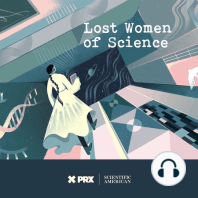2 min listen

A Flair for Efficiency: The Woman Who Redesigned the American Kitchen
A Flair for Efficiency: The Woman Who Redesigned the American Kitchen
ratings:
Length:
35 minutes
Released:
Sep 21, 2023
Format:
Podcast episode
Description
In the late 1920s, Lillian Gilbreth enlisted her children — she had 11— in an experiment: bake a strawberry shortcake in record time. Kitchens at the time tended to have haphazard configurations—pots and pans could be at one end of the kitchen, the stove in another, and the utensils in another room altogether—but Lillian figured that with a well-designed kitchen, she could slash baking time dramatically and make cooks’ lives easier. And if anyone was going to hack the kitchen, Lillian Gilbreth was the woman for the job.
Lillian and her late husband, Frank, were absolute fiends for efficiency. They’d used the study of “time and motion” to dissect the activities of factory and office workers, and had made a business of optimizing efficiency in the workplace. Now widowed, Lillian Gilbreth, was set to tackle efficiency in the home when their clients would continue working with her and the business failed. Her innovations—she’s widely credited with inventing the pedal trash can and refrigerator door shelves—live with us to this day.
Lillian and her late husband, Frank, were absolute fiends for efficiency. They’d used the study of “time and motion” to dissect the activities of factory and office workers, and had made a business of optimizing efficiency in the workplace. Now widowed, Lillian Gilbreth, was set to tackle efficiency in the home when their clients would continue working with her and the business failed. Her innovations—she’s widely credited with inventing the pedal trash can and refrigerator door shelves—live with us to this day.
Released:
Sep 21, 2023
Format:
Podcast episode
Titles in the series (75)
A Grasshopper in Very Tall Grass: Trailer: Don’t know who Klára Dán von Neumann was? You’re not alone. by Lost Women of Science